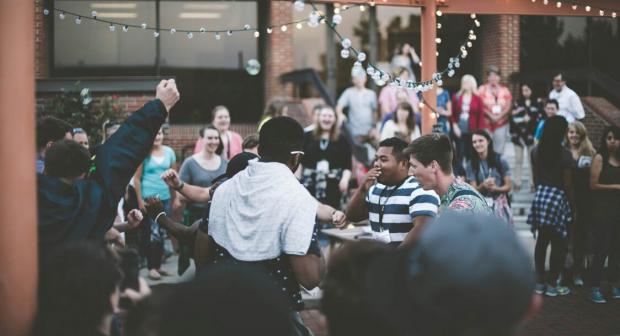
Breaking News
 Federal Judge Issues Fiery Dissent From Ruling Striking Down Texas Redistricting
Federal Judge Issues Fiery Dissent From Ruling Striking Down Texas Redistricting
 Jasmine Crockett Shares List Of Republicans Who Took Money From Epstein - Only Problem...
Jasmine Crockett Shares List Of Republicans Who Took Money From Epstein - Only Problem...
 EXCLUSIVE: Patrick Byrne Exposes The Bolshevik Revolution/Seditious Coup Threatening Our Nation
EXCLUSIVE: Patrick Byrne Exposes The Bolshevik Revolution/Seditious Coup Threatening Our Nation
 BOMBSHELL ALERT: The United States Is Still Under The United Nations' Climate Change Carbon Tax.
BOMBSHELL ALERT: The United States Is Still Under The United Nations' Climate Change Carbon Tax.
Top Tech News
 New Gel Regrows Dental Enamel–Which Humans Cannot Do–and Could Revolutionize Tooth Care
New Gel Regrows Dental Enamel–Which Humans Cannot Do–and Could Revolutionize Tooth Care
 Researchers want to drop lab grown brains into video games
Researchers want to drop lab grown brains into video games
 Scientists achieve breakthrough in Quantum satellite uplink
Scientists achieve breakthrough in Quantum satellite uplink
 Blue Origin New Glenn 2 Next Launch and How Many Launches in 2026 and 2027
Blue Origin New Glenn 2 Next Launch and How Many Launches in 2026 and 2027
 China's thorium reactor aims to fuse power and parity
China's thorium reactor aims to fuse power and parity
 Ancient way to create penicillin, a medicine from ancient era
Ancient way to create penicillin, a medicine from ancient era
 Goodbye, Cavities? Scientists Just Found a Way to Regrow Tooth Enamel
Goodbye, Cavities? Scientists Just Found a Way to Regrow Tooth Enamel
 Scientists Say They've Figured Out How to Transcribe Your Thoughts From an MRI Scan
Scientists Say They've Figured Out How to Transcribe Your Thoughts From an MRI Scan
 Calling Dr. Grok. Can AI Do Better than Your Primary Physician?
Calling Dr. Grok. Can AI Do Better than Your Primary Physician?
'Offline' Trend Sees Thousands Attending Phone-Free Concerts, Dates, and Events Where You Ca

One of the realities of social media addiction is the self-awareness of the addicted. A recent survey from the British Standards Institution found that 68% of teen respondents said they feel worse when they spend too much time on social media, and 47% would remove them from existence if they could.
So it's not surprising that hundreds of thousands of people are now attending 'IRL' events (in real life) where phones are either banned or limited.
Several new services are now curating "offline experiences" for social gatherings and dating, and the number of these events that are landing on the calendars of Americans and Europeans is a testament to the deep desire for human-to-human contact.
GNN has reported on the offline movement before. The Offline Club of Europe has over half-a-million Instagram followers (an ironic yardstick of success), and chapters across the continent gather at venues where one's smartphone is locked in a box at the start of the event.
Once inside, reading, chatting, sharing a drink, playing a board game—in short, everything we used to do to socialize—are preferred over looking down at your phone.
In addition to the Offline Club, companies like Kanso, Sofar Sounds, and the app 222, are making a business out of disconnecting humans from their social media feeds that overflow with targeted ads and AI-generated drivel.
Each one has found itself a niche, but all are returning us to the social activities that our parents used to do before phones. Kanso, which is not an app but rather an event planner, has hosted a few curated, phone-free events at different venues in large cities, mostly NYC, San Francisco, or London.

 Unbanked In A Connected World
Unbanked In A Connected World

